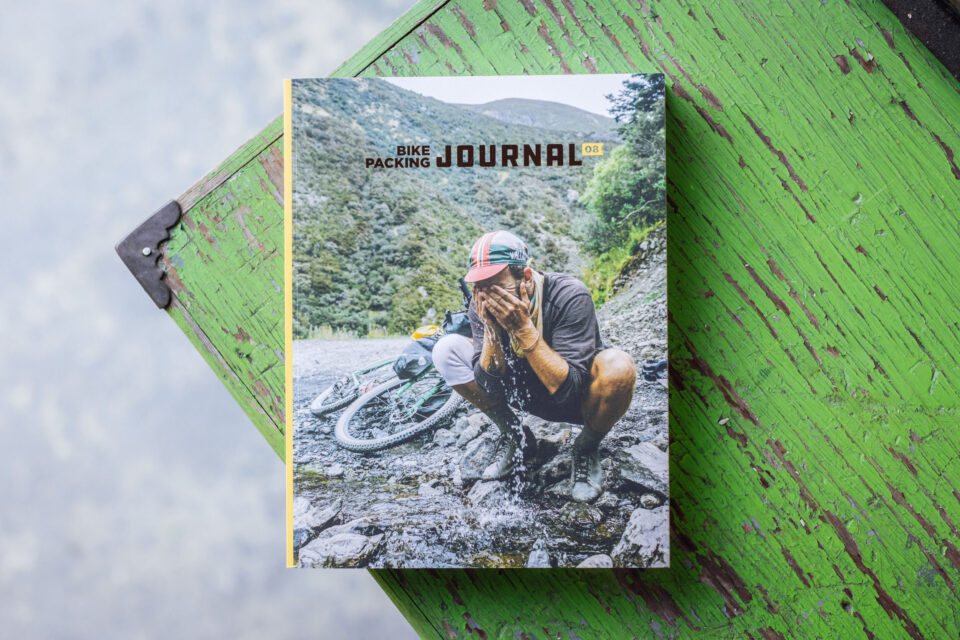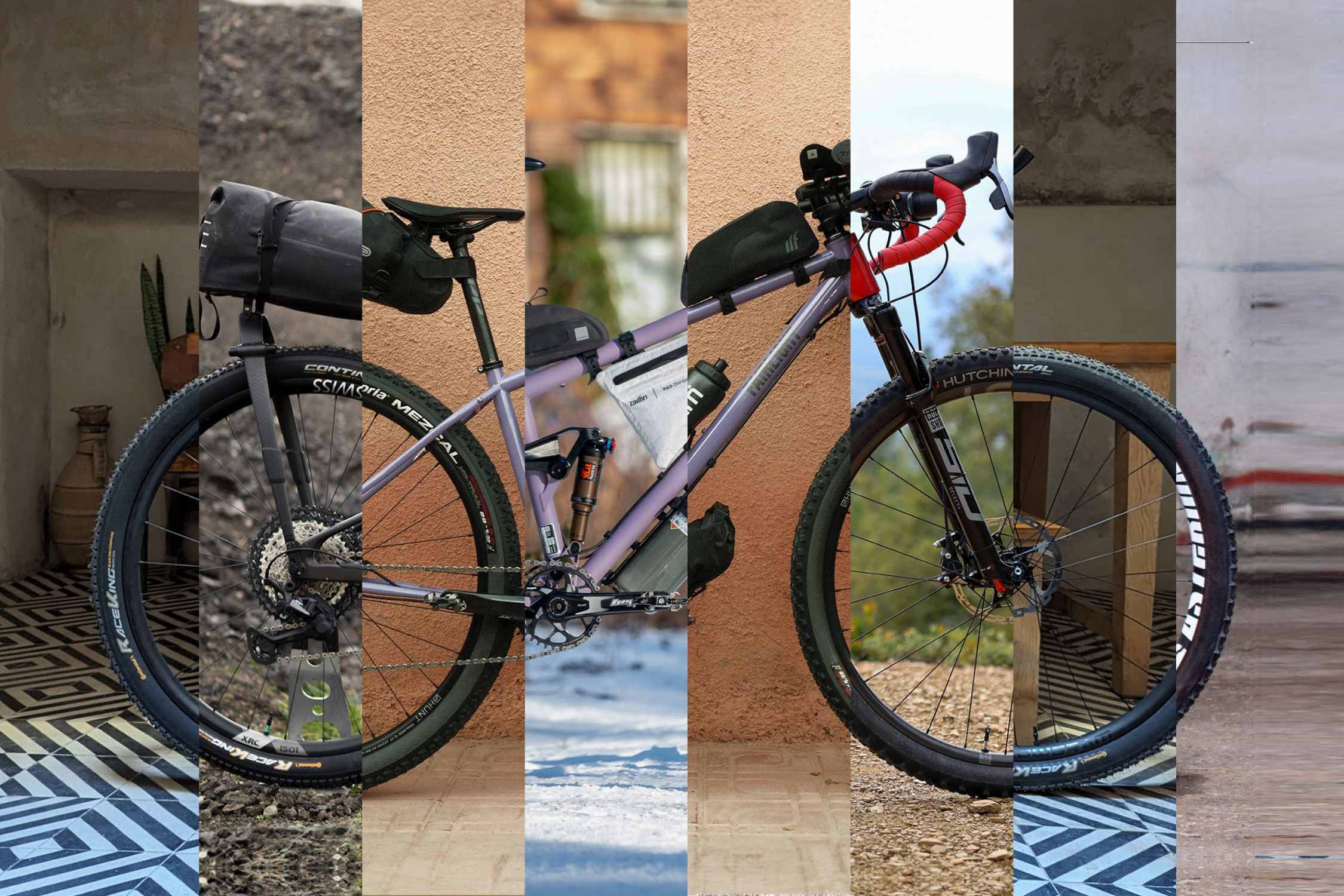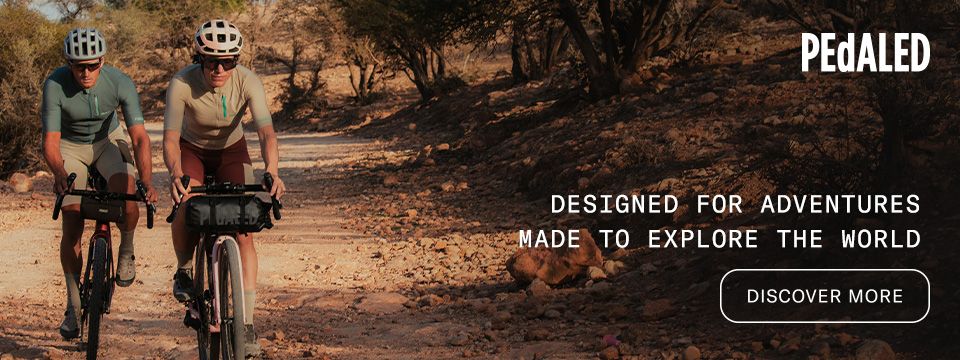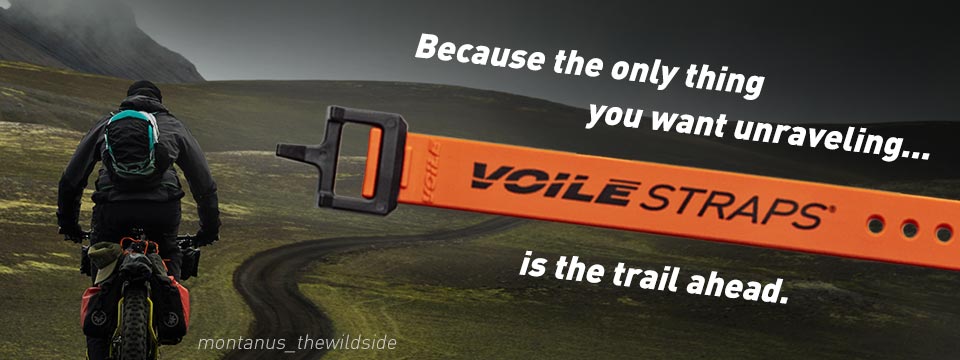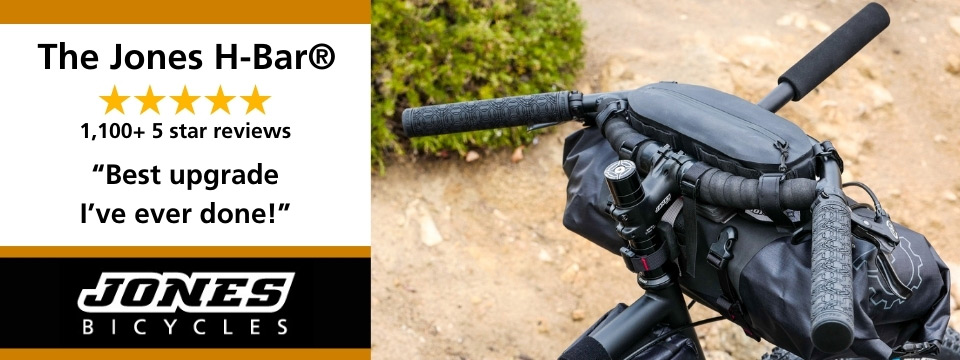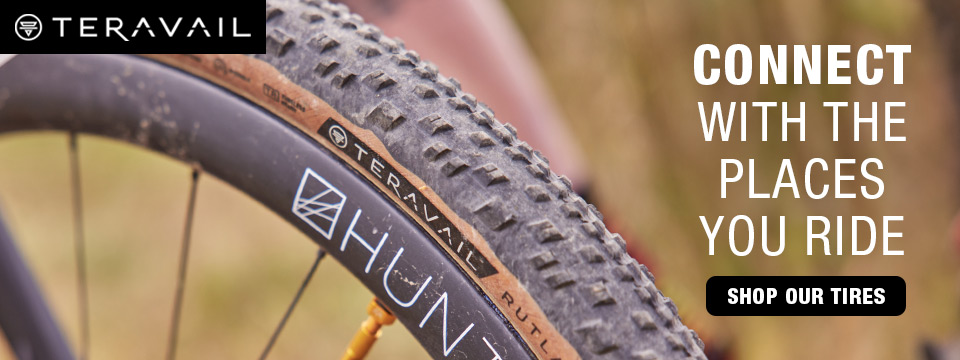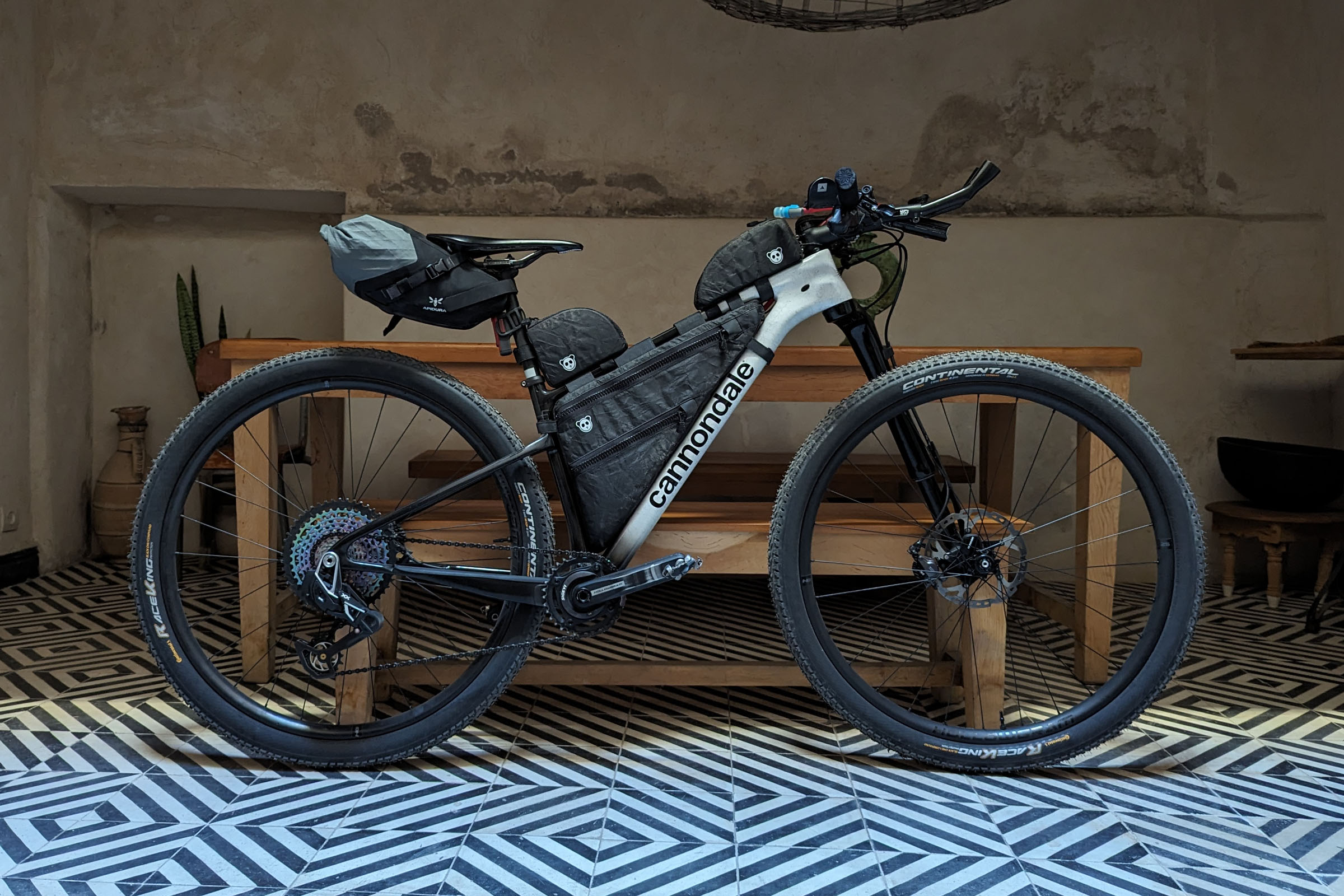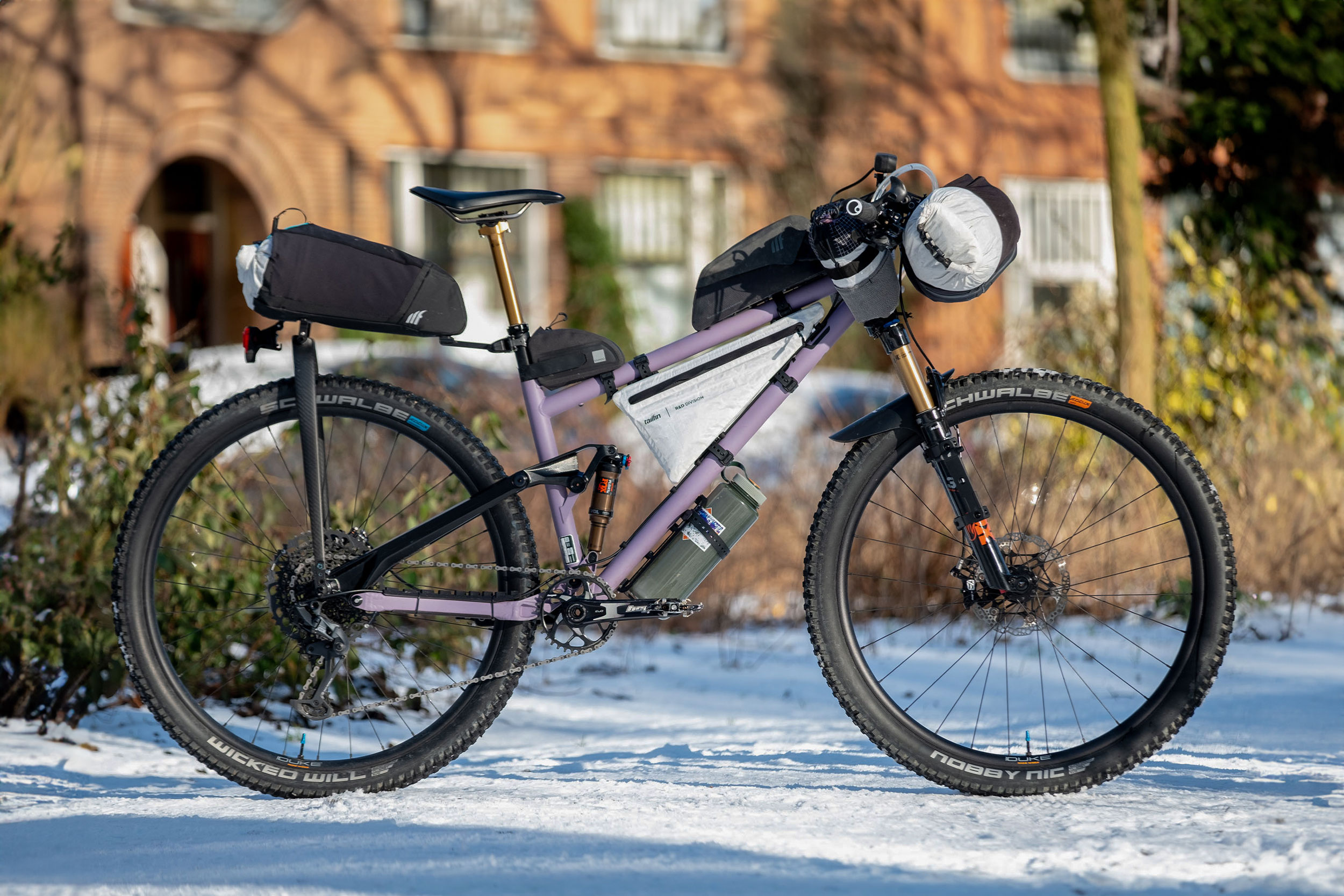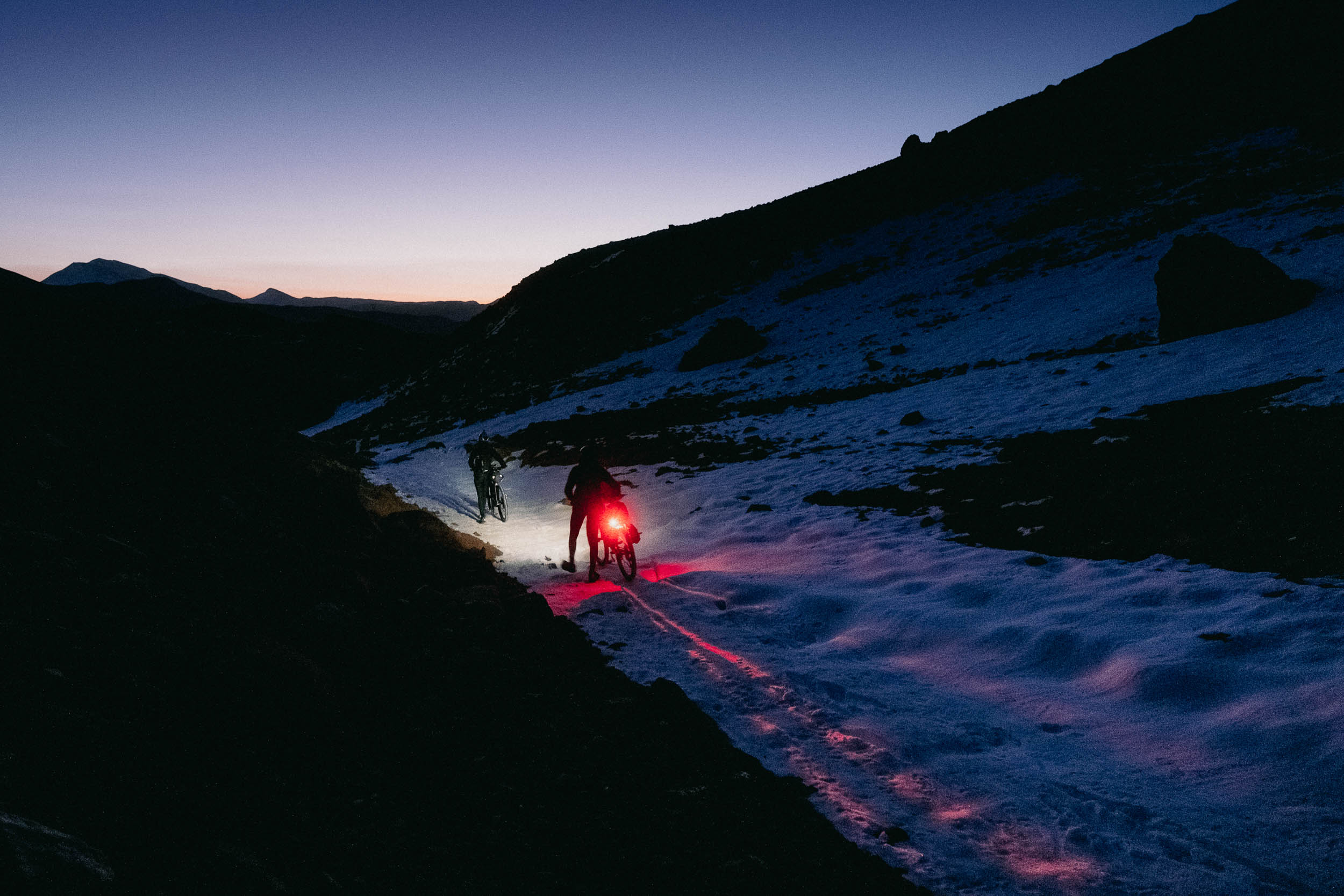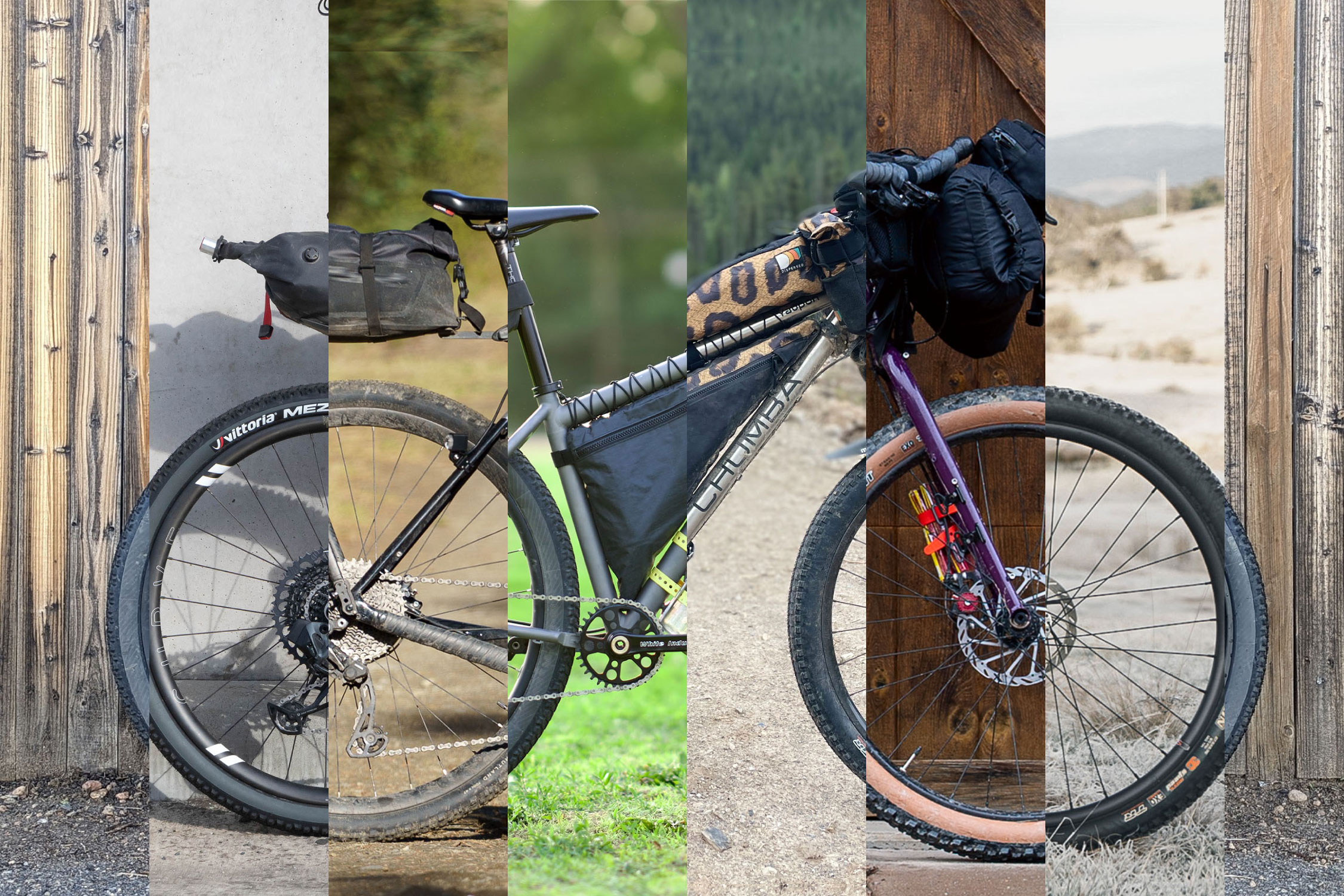2024 Atlas Mountain Race Rigs Breakdown: Stats, Tire Sizes, and Much More
Share This
The Atlas Mountain Race kicks off this evening local time, drawing over 200 racers for its fourth edition. Covering 800 miles from Marrakesh to Essaouira, Morocco, it has become a prominent self-supported ultra-endurance race globally, as evidenced by the 100+ submissions to our race rig roundup. In our latest video, Neil delves into the details of the rigs, unveiling some intriguing insights…
After putting together the 2023 Tour Divide Rigs Breakdown last year, we decided it would be fun to do the same with several other big races. The Atlas Mountain Race is one of them, as it makes the case with nearly 300 riders participating this year. Though the Tour Divide boasts a greater overall length, the Atlas Mountain Race has proven to be rougher and decidedly more technical. Dig into all of our findings below and find the two-part Rigs of the Atlas Mountain Race linked in the Further Reading grid at the bottom of the post.
Examining participants from both events, including 2023 Tour Divide winner Ulrich Bartholmoes and runner-up Justians Leveika, some notable choices emerge. Ulrich remains loyal to his drop-bar BMC, emphasizing familiarity, while Justinas opts for enhanced comfort, selecting a full-suspension cross-country bike.
Bikes and Bars
Regarding handlebars, 83 out of 105 rigs feature flat bars, highlighting the technical nature of the overall route. In terms of aero bars, the majority of the field—69 participants—opt for them, while 36 chose not to. Among the 105 rigs, 90 are equipped with suspension forks, with only three flat-bar rigs equipped with rigid forks. Of the 22 drop bar rigs, 10 incorporate suspension forks, and there are 19 full-suspension bikes.

Prominent brands include 12 Treks, 8 Specialized, 8 Canyon, and 7 Salsas. Cannondale, Mason, and Orbea each boasting 5, along with Scott featured in 4 instances. Additionally, a striking Salsa Powder Keg tandem equipped with S&S couplers adds a unique touch.
Tires
Shifting focus to tires, a fascinating aspect of race bike setups. The representation spanned 12 tire brands and 7 size ranges. The preferred tire was either 2.2 or 2.25″, with 54 riders opting for this size, followed by 2.3 or 2.35″ at 32. Notably, 6 individuals chose 2.4″ tires, while 5 went for 2.1″ sizes, and only 3 embraced the 2.6″ width, which is somewhat surprising. Interestingly, the 29+ category showed signs of life, with one participant using a plus bike fitted with 3.0″ tires.

For tire brands, Vittoria Mezcal emerged as a favorite. While it offers excellent speed, something that’s clearly on riders’ minds, I myself found its performance lacking in chunky terrain, which makes its widespread use intriguing on this rugged route. Among the participants, 36 individuals utilized various Vittoria tire models, predominantly full Mezcal sets or a Bardo/Mezcal combination.
Maxxis tires were the choice for 25 participants, encompassing models like Ardent, Recon, Recon Race, or Ikons. Following closely were 10 riders favoring Continental tires, primarily Race Kings, along with 8 on Schwalbe tires, 7 on Pirelli Scorpions, 7 on Rene Herse Fleecer Ridge tires, and others from diverse brands. It’s worth noting that only 3 participants opted for the 27.5″ wheel diameter, which may raise eyebrows. Additionally, for the curious, 21 tan sidewalls made an appearance.
Drivetrains
Regarding drivetrains, much like the Tour Divide, a notable duopoly dominates the landscape, with Shimano and SRAM on nearly every bike. SRAM leads with 60 users, followed by 41 opting for Shimano. Surprisingly, only one bike embraced a singlespeed setup, with another using a Rohloff hub, and an additional one utilizing a 13-speed Campagnolo drivetrain. Speaking of speeds, the majority favored 1x setups, predominantly 12-speed configurations. However, ten participants opted for 11-speed setups, including one 2×11, and two utilized 10-speed cassettes. Interestingly, the Salsa tandem is running a 3x setup.

Similar to the Tour Divide, electronic shifting is popular, although it didn’t make up the majority, with 37 out of 105 systems relying on batteries. Notably, only two Shimano Di2 systems were observed, both being GRX setups. The remaining electronic systems were exclusively SRAM AXS, with nine adopting the new Eagle Transmission system. While nothing extraordinary emerged for this race, it’s clear that the SRAM electronic system is trusted, despite some failures during the Tour Divide. Notably, participant Justinas had a failed SRAM battery and derailleur towards the race’s conclusion. It’s good to see him giving SRAM a second chance.
Bikepacking Gear
When I started my role in bikepacking journalism a decade ago, one of my primary objectives was spotlighting the commendable work of bikepacking bag makers—a commitment I continue today. It helps our little bike industry niche tick, and makes each bike unique. The results from the Atlas Mountain race were pretty interesting. Notably, there was a scarcity of fully outfitted kits from a single brand, which is pretty sweet. Among participants, 74 opted for a diverse mix of brands for their bikepacking bag kit, while the rest were loyal to a single brand. Apidura emerged dominant with nine complete kits, trailed by Restrap at seven and Tailfin at five. Seat packs were the favored choice for most racers, with 74 utilizing them, 20 employing Tailfin Aeropacks, and six opting for racks and dry bags. Four individuals embraced a minimalist approach, forgoing a seat pack entirely; go fast, carry nothing!. Additionally, there also seems to be some sweet new Tailfin bags that folks are testing. I look forward to see what comes from these real-world trials.

Demographics
Diving into demographics, our ‘Rigs of’ series boasts representation from 22 countries. The United Kingdom dominates with 23 participants, although specifics on their locations within the UK are mostly undisclosed. Following closely is France with 17 individuals, succeeded by Belgium with 9, Germany with 8, and Italy with 6. A special mention goes to the lone participant from Morocco. In terms of age distribution, the 30-39 age group leads with 45 individuals, trailed by the 40-49 group with 23, the 50-59 group with 15, 20-29 with 14, 2 individuals aged 60 and above, 1 participant under 20, and 4 individuals who omitted their age. These demographics largely align with the Tour Divide Numbers of 2023, except for a relative absence of participants in the 60s age group in the Atlas Mountain race.

Other Findings
Several other observations stood out: dropper posts were not particularly popular, with only 14 in the group. While this surprises me, it aligns with the prevalent use of seat bags, as most are not dropper-friendly. Additionally, I tallied only 9 suspension seat posts, primarily of the Cane Creek variety. About half of the participants are running dynamo hubs, while the remainder are packing plenty of batteries for nighttime riding. In terms of recharging, 8 individuals rely on the newer Garmin Edge 840 or 1040 solar GPS units, a fascinating trend that I personally appreciate.
Further Reading
Make sure to dig into these related articles for more info...
Please keep the conversation civil, constructive, and inclusive, or your comment will be removed.




